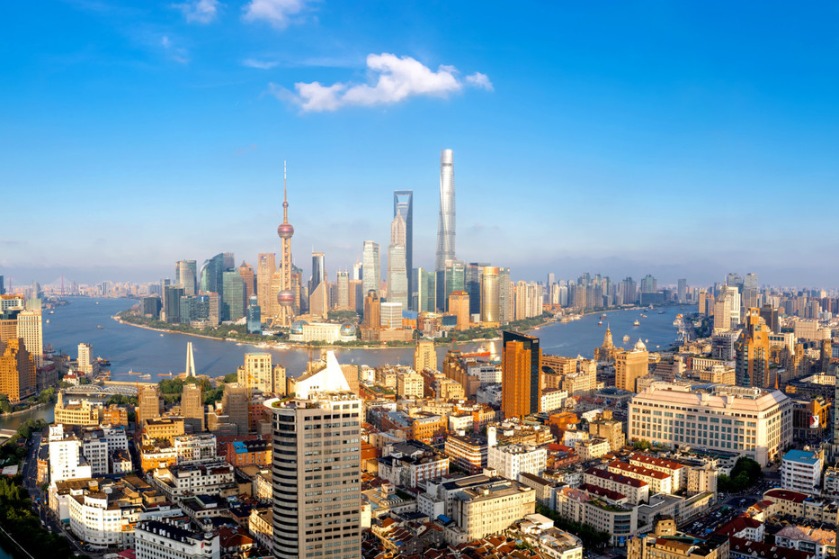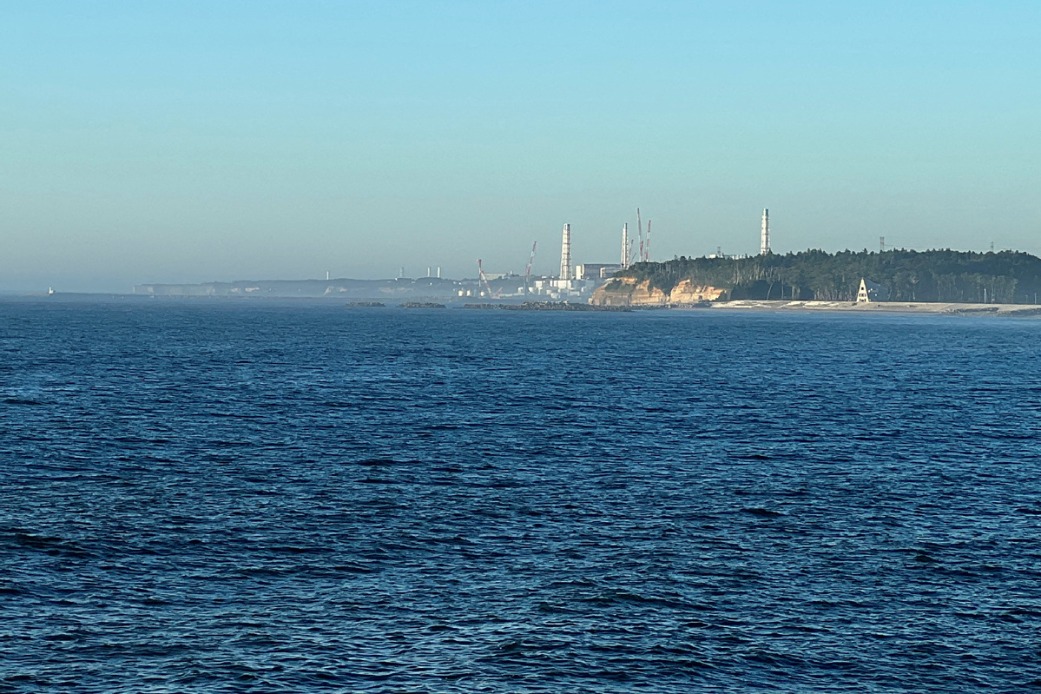Nuclear Safety in China

I. Following a Rational, Coordinated and Balanced Nuclear Safety Strategy
On March 24, 2014, at the third Nuclear Security Summit in The Hague, the Netherlands, President Xi Jinping proposed a rational, coordinated and balanced nuclear safety strategy. China's nuclear safety strategy is the embodiment of Xi Jinping Thought on Socialism with Chinese Characteristics for a New Era in the nuclear field, an important element of China's overall national security framework, and a major innovation in the theory of nuclear safety governance. The strategy is an important milestone in promoting international nuclear safety. It lays out the principles and methods for addressing the fundamental issues of global nuclear safety governance and building a community of shared future for nuclear safety.
The kernel of China's nuclear safety strategy is the "Four Emphases". Systematically promoting nuclear safety in an all-round way is the main purpose of China's nuclear safety strategy, which is embodied in equal emphasis on development and safety, rights and obligations, independent efforts and coordination, and symptoms and root causes.
-We should place equal emphasis on development and safety, and develop the nuclear industry in a context of guaranteed safety. Development is the foundation of safety, while safety is a precondition for development. Development and safety are the basic requirements of humanity for the peaceful use of nuclear energy. We should uphold the concept of seeking safety for development and promoting development with safety, so that the two objectives can be integrated and mutually reinforcing. Only by achieving better development can we truly control safety risks; and only by guaranteeing safety can nuclear energy achieve sustainable development.
-We should place equal emphasis on rights and obligations, and promote international nuclear safety on the basis of respect for the rights and interests of all countries. States should effectively fulfill their obligations under the international legal instruments on nuclear safety, fully implement the relevant resolutions of the United Nations Security Council, and consolidate and develop the existing legal framework for nuclear safety. At the same time, we should adhere to the principle of fairness and uphold pragmatism in respecting the right of all countries to adopt their own nuclear safety policies and measures suited to their national conditions, and respecting their right to protect sensitive nuclear safety information.
-We should place equal emphasis on independent efforts and coordination, and seek universal nuclear safety with a mutually beneficial approach. Nuclear safety is first and foremost a national issue, and the primary responsibility should be borne by the government of each country. Governments should understand and undertake their responsibilities, and be responsible not only to themselves but also to the world. They should strengthen coordination, make joint efforts, share achievements, and seek mutual benefit. We should benefit from and contribute to nuclear safety, and endeavor to globalize nuclear safety.
-We should place equal emphasis on symptoms and root causes, and comprehensively promote nuclear safety by eliminating the root causes of risk. We will improve nuclear safety policy measures, develop modern and low-risk nuclear energy, maintain a balance between supply and demand in nuclear materials, strengthen non-proliferation efforts and export control, further international cooperation against nuclear terrorism, and eliminate potential dangers to nuclear safety and risks of nuclear proliferation. All countries should work together to develop harmonious and friendly relations, create a peaceful and stable international environment, and solve the problems of nuclear terrorism and proliferation from the root, thus realizing the lasting safety and development of nuclear energy.
China practices peaceful use of nuclear energy on the basis of ensuring safety, which responds to the needs of the people today and will not leave any risk or cause harm to future generations. This practice will guarantee the sustainable development of human civilization.
The basic principles of China's nuclear safety are: putting safety first and exercising nuclear safety governance in accordance with the law, focusing on risk prevention and implementing defense-in-depth, ensuring clear lines of responsibility and independent regulation, and practicing strict management and providing comprehensive guarantees.
-Putting safety first and exercising nuclear safety governance in accordance with the law. We should establish the concept that safety is of the utmost importance and ensure that nuclear safety is the paramount consideration in decision-making. We will continue to improve the system of laws and regulations on nuclear safety, and ensure that nuclear energy is developed and utilized in accordance with the law.
-Focusing on risk prevention and implementing defense-in-depth. We should concentrate our efforts on eliminating potential risks and preventing nuclear accidents through mature design, high-quality construction, and sound operational management. Following the principle of defense-in-depth, we set up multiple barriers and multiple forms of protection, and strengthen the integrity, independence, and effectiveness of preventative measures.
-Ensuring clear lines of responsibility and independent regulation. Nuclear facility operating organizations shall take overall responsibility for safety. The national nuclear safety regulatory body implements independent regulation; the nuclear industry and energy authorities, and other relevant authorities are responsible for the management of nuclear safety in accordance with the division of duties.
-Practicing strict management and providing comprehensive guarantees. We should strictly implement nuclear safety laws, regulations and standards, and carry out regulation through administrative licensing, technical review, surveillance, and law enforcement. We will establish a coordination mechanism for nuclear safety, improve the relevant policies and regulations, formulate and implement relevant plans, foster a nuclear safety culture, and strengthen resource allocation and capacity building, so as to ensure comprehensive nuclear safety.
II. Building a Policy and Legal Framework on Nuclear Safety
China is a leading country in the application of nuclear energy and technologies. Nuclear safety is critical to national security, and the corresponding policies and laws are the cornerstone of nuclear safety. To achieve optimal management of nuclear safety, China employs the high-est standards and strictest requirements in shaping the policy and legal framework, implementing a national strategy, making medium-and long-term plans, and improving laws and regulations concerning nuclear safety.
Formulating a national nuclear safety strategy. China treats the development and utilization of nuclear energy as an important strategy to boost economic and social development and build a beautiful China, including it in the country's medium-and long-term plans for national economic and social development. Since the founding of the People's Republic of China, and particularly since the launch of reform and opening-up, China has committed itself to prioritizing nuclear safety and maintaining a balance between safety and development throughout the stages of initial, early, active, and safe and efficient development.
Making medium-and long-term development plans for nuclear safety. China makes medium-and long-term development plans for nuclear safety every five years under the framework of the Five-year Plan for National Economic and Social Development. It has released the 12th Five-year Plan for Nuclear Safety and Radioactive Pollution Prevention and Control and Vision for 2020, and the 13th Five-year Plan for Nuclear Safety and Radioactive Pollution Prevention and Control and Vision for 2025, analyzing the situation, clarifying guidelines and principles, and defining goal indicators, key tasks and projects, and supportive measures for nuclear safety. These plans have helped to coordinate all efforts to ensure nuclear safety and effectively improved our nuclear safety and regulatory capacity.
Establishing a sound system of laws and industrial standards. China continues to strengthen the formulation of the laws on nuclear safety, under which administrative regulations and departmental rules dovetail with the law, the provisions of laws and regulations and technical standards complement each other, and central and local regulations combine to the best effect. This makes the full regulation of nuclear energy development and utilization possible, laying the foundations for the rule of law in this sector. In June 2003, the Law of the People's Republic of China on the Prevention and Control of Radioactive Pollution was promulgated; in September 2017, the Nuclear Safety Law of the People's Republic of China was issued. By June 2019, China had enacted nine administrative regulations such as the Regulations on the Supervision and Administration of Civil Nuclear Facilities, the Regulations on the Supervision and Administration of Civil Nuclear Safety Equipment, the Regulations on Nuclear Material Control, and the Regulations on Emergency Management of Nuclear Accidents at Nuclear Power Plants. It had issued over 30 sets of departmental rules and 100 sets of safety guidelines, and formulated over 1,000 national and industry standards related to nuclear safety. Over 200 local regulations have been formulated by China's 31 provinces and equivalent administrative units. To update legal standards and keep abreast of the most advanced international developments, we have reviewed and summarized domestic and overseas experience in nuclear safety, and closely tracked the latest safety standards of the International Atomic Energy Agency and countries with advanced nuclear technologies.


































